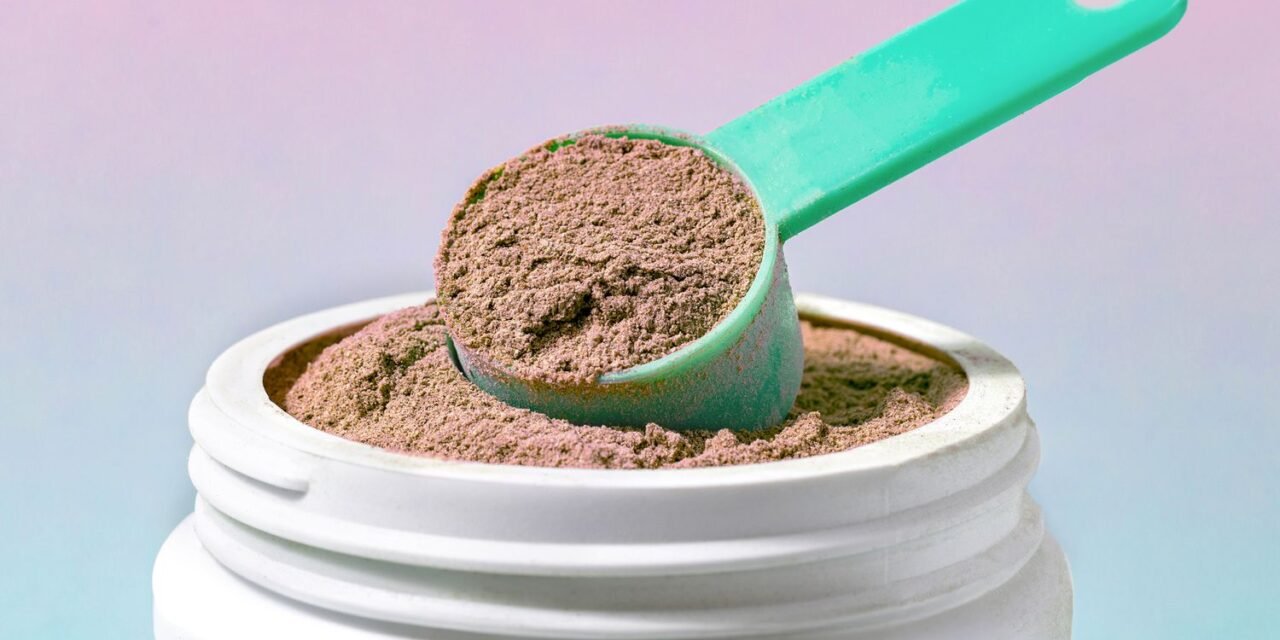Protein powders have develop into a staple in many individuals’s diets as a technique to enhance protein consumption, construct muscle and assist restoration. Nevertheless, current analysis from the Clear Label Venture has raised issues concerning the presence of heavy metals in protein powders.
The research discovered that almost half of the protein powders examined contained ranges of poisonous metals, akin to lead, cadmium and arsenic, exceeding security thresholds. Whereas this has sparked concern amongst common protein powder customers, well being specialists from the Council for Accountable Diet have issued a response that challenges the findings and urges a better take a look at the info.
CRN is an business affiliation that represents many dietary complement and purposeful meals producers, in addition to ingredient suppliers. Their membership contains manufacturers like Amway, Herbalife, Nestlé and Bayer.
We took a take a look at each side of the controversy to search out out what you actually need to know.
What Does the New Examine Say?
The CLP performed a research of 160 protein powders from 70 top-selling manufacturers—that’s about 80% of the powders generally discovered in the marketplace. In keeping with the report, 47% of the examined merchandise exceeded California’s Proposition 65 security limits for heavy metals.
Plant-based protein powders had been notably regarding, with larger ranges of lead and cadmium than whey-based powders. Natural protein powders additionally examined constructive for lead at a better degree—41% of natural powders examined at twice the restrict set in Proposition 65. And chocolate-flavored protein powders had as much as 4 instances extra lead than vanilla-flavored ones.
CLP’s report highlighted that these metals may enter protein powders by environmental publicity, akin to contaminated soil, air and water or packaging supplies. As a conclusion to the findings, CLP cautions protein powder customers concerning the potential long-term well being dangers related to ingesting these metals, citing their hyperlinks to severe situations like most cancers and kidney illness.
Why Are There Heavy Metals in So Many Protein Powders?
Whereas these findings could sound alarming, the CRN has expressed issues about how the info is offered. In keeping with Andrea Wong, Ph.D., senior vice chairman of scientific & regulatory affairs with the Council for Accountable Diet, the research lacks essential context that will assist customers make knowledgeable selections.
“The detection of contaminants, as highlighted on this report, doesn’t inherently equate to a well being danger,” explains Wong. “Trendy analytical methods can detect even hint ranges of naturally occurring parts, akin to heavy metals, that are current in soil, air and water. These hint ranges are sometimes nicely beneath established security thresholds set by federal companies just like the FDA and the EPA.”
Wong factors out that CLP’s reliance on California’s Proposition 65 requirements, that are considerably stricter than federal tips, may result in pointless concern. “Exceeding the Prop 65 degree doesn’t essentially translate right into a dangerous degree. It merely implies that the product have to be labeled for shopper consciousness, not that it’s unsafe,” says Wong.
The report additionally fails to specify whether or not the heavy metals had been detected in kinds which might be dangerous. As an example, Wong notes that some types of arsenic are unhazardous, however that distinction isn’t made clear within the research.
Moreover, the CRN expressed issues concerning the lack of transparency in CLP’s methodology. “The report doesn’t disclose the precise ranges detected or the standards used to outline contamination thresholds. With out this information, customers can not assess the validity or significance of the findings,” explains Wong.
Is Your Protein Powder Protected?
Wong says that whereas decreasing contaminants in meals and dietary dietary supplements is complicated, many corporations are taking steps to attenuate heavy metallic ranges by higher sourcing practices, manufacturing protocols and testing procedures.
In case you’re involved about heavy metals in your dietary supplements, know that not all protein powders are created equal. Search for respected merchandise that present third-party testing outcomes for peace of thoughts with regards to the standard and purity of your protein powder. As for CLP, they named Genetic Diet, Ritual, Puori, Depraved Protein, Nutrabox and others as beneficial, Clear Label Venture–licensed manufacturers.
The Backside Line
A brand new report from the Clear Label Venture has raised issues concerning the presence of heavy metals in protein powders. The Council for Accountable Diet, a commerce group that features some protein powder producers, has responded, explaining that the analysis’s lack of transparency and reliance on overly strict security requirements could set off pointless alarm. The CRN argues that information akin to contamination ranges and methodology weren’t disclosed and that heavy metallic ranges exceeding California’s Proposition 65 thresholds don’t essentially pose a security challenge.
As at all times, be a aware shopper and verify product labels for third-party testing to assist make sure you’re shopping for high-quality dietary supplements. Converse with a registered dietitian or well being care supplier when you’ve got any issues concerning the security of your protein powders.





